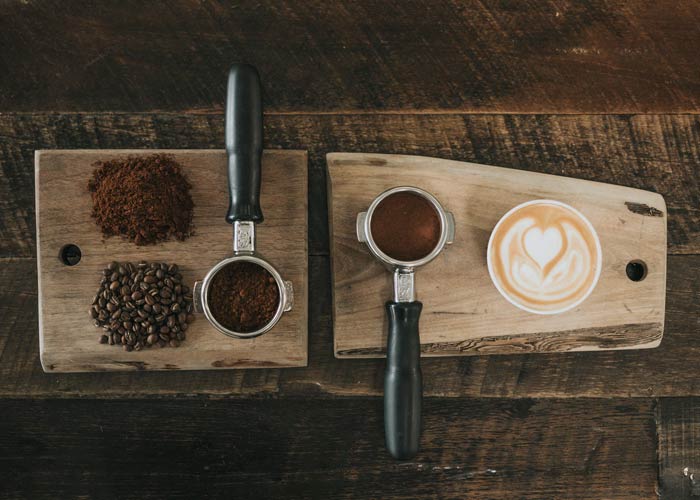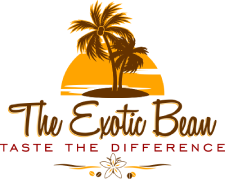What Is Sustainable Coffee and What Qualifies as World’s Most Sustainable?

Coffee is the second-most traded commodity in the world after oil, so you can imagine that all kinds of people from the producers to the traders, to the wholesalers on down to the average consumers, take their coffee very seriously. Something else that people currently taking very seriously these days is sustainable coffee.
More and more responsible citizens are trying to be sustainable in the foods they eat, the beverages they drink, and the things they do, recognizing our responsibility as responsible stewards of the ecosystem. Coffee is one of the easiest areas to make a commitment to sustainability for the coffee drinker, as sustainable coffee is not all that much more expensive than a quality cup of standard coffee, and it tastes just as good, if not better.
But what exactly does it mean to serve or sell the world’s most sustainable coffee?
Working hand in hand, and heart to heart with farmers, Paradise Mountain makes coffee for people who think about their actions and their effect on the world around them, people who see the earth and its inhabitants as resources to be treasured and protected: people who live with intention and are moved by their heart.
The Big Three Pillars of Sustainability
To qualify as the world’s most sustainable coffee, your coffee must be certified as three things: Organic, Fair Trade, and Shade Grown. If your coffee is any of these things, you can consider it sustainable, but to be the most sustainable coffee, you have to have all three. So, what does it all mean?
1) Shade Grown Coffee
Shade grown coffee is coffee grown on a farm with forest cover, as the name would indicate. It is coffee under a mostly undamaged forest canopy where migrating birds can roost and the soil has extra nutrients and more pollinators.
These types of coffee farms do not need pesticides since they usually have many natural predators in the environment to kill coffee-threatening pests, they have very limited carbon footprint, and are generally better for the environment and the health of the drinker.
2) Fair Trade Coffee
Fair trade certification is a way to make sure that farmers, growers, distributors and others involved in the coffee trade grow coffee in a fair and safe manner. It is also a way to support farmers like shade-grown coffee producers who might otherwise struggle to get a fair price for their product.
Certified fair trade coffee implies direct trade with farmers and fair prices for farmers, who must provide suitable working and living conditions for those working their coffee farms. It also guarantees sustainable agricultural practices like limited use of agrochemicals.
3) Organic Coffee
The “organic” label can be a tricky one when it comes to defining coffee. Some assume that it means the coffee is farmed using sustainable methods. Others think it means that it is coffee that has not been treated with pesticides. Neither of these are true. All certified organic means is that the coffee in question has not been treated with synthetic pesticides.
Organic coffee may be treated with natural pesticides, and the beans are roasted separately from any non-organic coffee beans in their own roaster. Non-organic coffee may also have only natural pesticides and be farmed in a sustainable manner, so, while certified organic is part of the picture, it should never be your only criterion when searching for coffee that is as healthy and sustainable as possible.
So now you know. When you’re seeking out the most sustainable coffee possible, check for the big three certifications: Shade Grown, Fair Trade and Organic.

Paradise Mountain Organic Coffee Farm
Paradise Mountain is honored to be serving the world’s most sustainable coffee. The landscape on the farm is untouched to preserve wildlife and it is a certified Bird-Friendly coffee farm by the Smithsonian Institute. This means, the farm uses “a combination of foliage cover, tree height and biodiversity to provide quality habitat for birds and other wildlife.” The certification works to end deforestation and protect a natural habitat.
Not only is the farm good for the local wildlife, the shade-grown coffee trees are beneficial to the environment. The spring water is returned to the earth after use for irrigation, and there is a pond created to capture rainwater for the dry seasons. The foliage from surrounding trees is used as a natural compost and increases soil fertility. The burlap sacks used to transport the coffee are sent back to the farm and reused, and the compost bags are reused to reinforce the dam. Every aspect of the farm and process is responsible and sustainable!
Paradise Mountain Organic Coffee Farm boasts over 200 acres of hand-planted coffee trees on its sprawling landscape. And it is “True Trade,” meaning the growers are the owners, and the farmers are paid wages that are above those in the fair-trade industry. Every harvest season, job opportunities abound for over 100 people. The farm supports two local villages, and engages in ceremonies, celebrations and village gatherings. Paradise Mountain Organic Coffee Farm supports community projects including supplying medical supplies, shoes and infrastructure support. The farm has definitely grown to be a part of the local community.
Paradise Mountain Organic Coffee Plant
The roasting for Paradise Mountain is completed in an organic roasting plant in Calgary. All of the excess coffee chaff is reused, packaged into biodegradable bags and then recycled into garden fertilizer for local garden stores. Extra burlap sacks are donated and made into furniture, handbags, dog beds and other products. And the Paradise Mountain Organic Coffee Bag is available in biodegradable or recyclable packaging.
Join the sustainable coffee revolution and support a company that is responsible, ethical and progressive. Browse Paradise Mountain Organic Coffee now, the World’s Most Sustainable Coffee.
